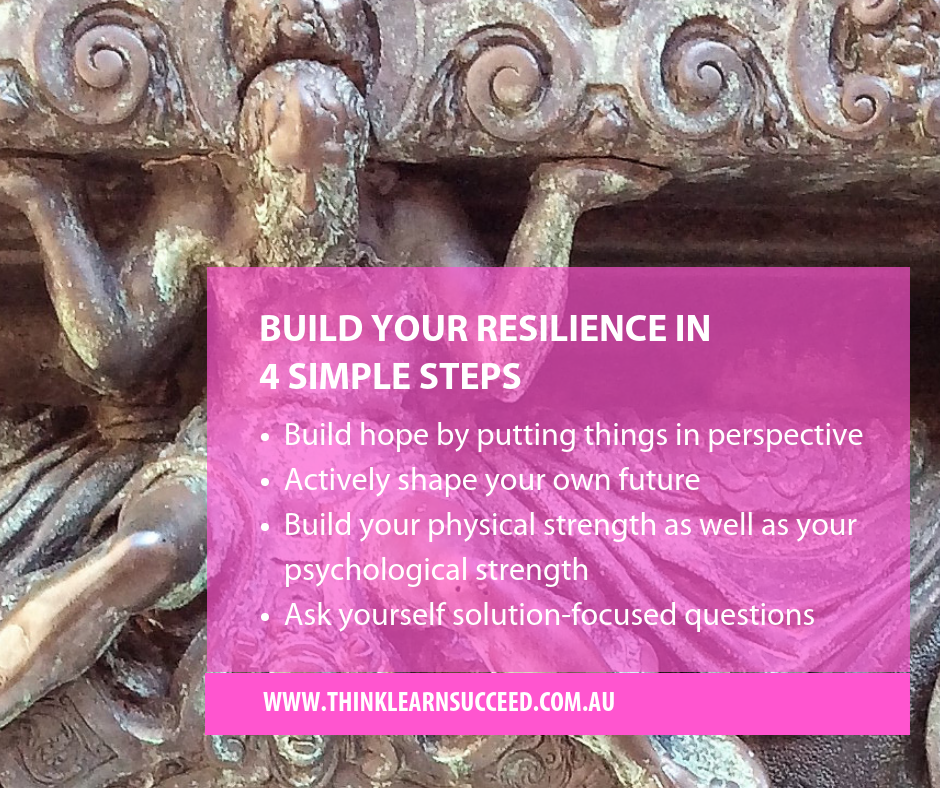 In today’s high-velocity workplace environment, HR practitioners need robust tools for enabling employees to build resilience and reduce stress. You can find those tools in the suite of techniques developed by positive psychology researchers. The point about these tools is they are backed by science: they’re founded in real psychology, not pop psychology. In a previous article Stay positive in tough times, I explained four evidence-based interventions that support the development of resilient thinking:
In today’s high-velocity workplace environment, HR practitioners need robust tools for enabling employees to build resilience and reduce stress. You can find those tools in the suite of techniques developed by positive psychology researchers. The point about these tools is they are backed by science: they’re founded in real psychology, not pop psychology. In a previous article Stay positive in tough times, I explained four evidence-based interventions that support the development of resilient thinking:
- Actively building hope that the future can be (even) better than the present
- Connecting to a sense of higher purpose
- Looking after the self
- Using learned optimism techniques to foster solution-focused thinking
Now let’s look at an example of how resilient thinking can help YOU thrive in challenging times – such as times of significant organisational change. Imagine a business restructure has just been announced. People are starting to gossip and word is out that the HR function is going to be outsourced. Instead of wallowing in the doom and gloom, here’s how you could handle the situation with resilience and optimism.
Build hope by putting things in perspective
Obviously, adopting an optimistic perspective on workplace change will help you navigate turbulent times more resourcefully. Use rational thinking tools to create a hopeful vision of the future and an action plan for how you will turn that vision into reality. If you find this difficult, connect with a coach or mentor to support you. Contact Eleanor Shakiba if you would like details on how coaching works.
Actively shape your own future
Being in limbo is an unsettling experience. Waiting passively for something to happen, or decisions to be made, erodes your confidence and saps your energy. So don’t sit still – take matters into your own hands by defining your goals for the next stage of your career. Connect with people who can support you in building a new you. The more action you take, the more your resilience will blossom.
Build your physical strength as well as your psychological strength
Yes, it is easy to slip into bad habits during times of change. For example, if members of your team have recently been made redundant, your workload might increase overnight. Working longer hours to compensate might seem like a sensible solution. But this tactic would swiftly undermine your resilience. It would be far more sensible to increase your exercise time and decrease unnecessary tasks at work.
Ask yourself solution-focused questions
During change, it’s easy to let your imagination run riot. So it’s a wise HR practitioner who monitors their own thinking patterns. If you find yourself worrying, pause and take note of any catastrophic thinking you are engaging in. Then ask solution-focused questions to blast through negative thinking. For example, ask yourself, ‘Which parts of the situation do I have the power to change?’ or ‘What benefits might this change bring me?’
Learning to think in these ways will equip you to handle the ups and downs of working in HR. Remember that HR practitioners are often exposed to the more challenging sides of organisational change. What matters isn’t that change is looming. It’s how you think about that change that makes a difference to your resilience. Famed jazz trumpeter Miles Davis once said, ‘When you hit a wrong note, it’s the next note that makes it good or bad.’ Keep this in mind the next time you face ominous change and need to boost your resilience.
About the author of this article
Eleanor Shakiba is has dedicated her career to helping talented professionals develop their confidence, communication skills and leadership savvy. She is a positive psychology trainer and success coach. Find out how Eleanor can help you or your team here.